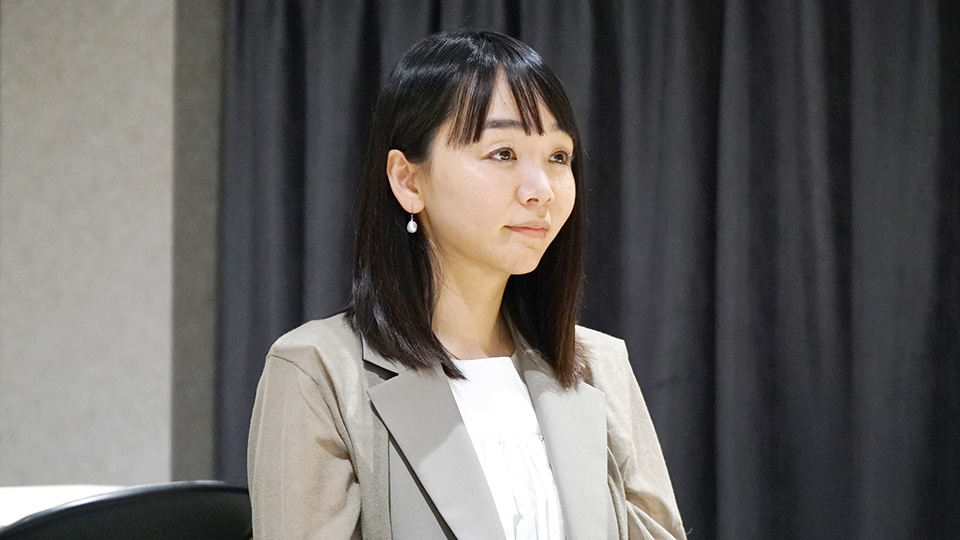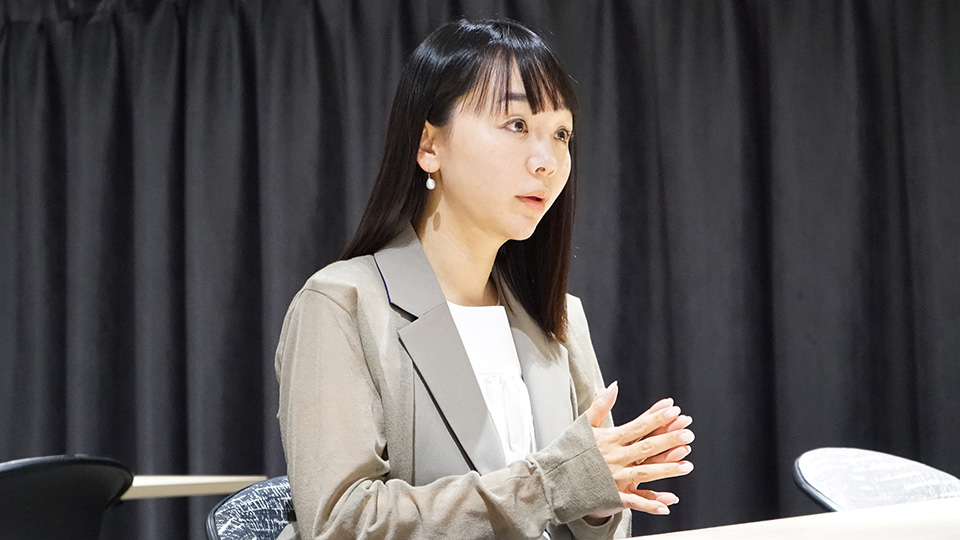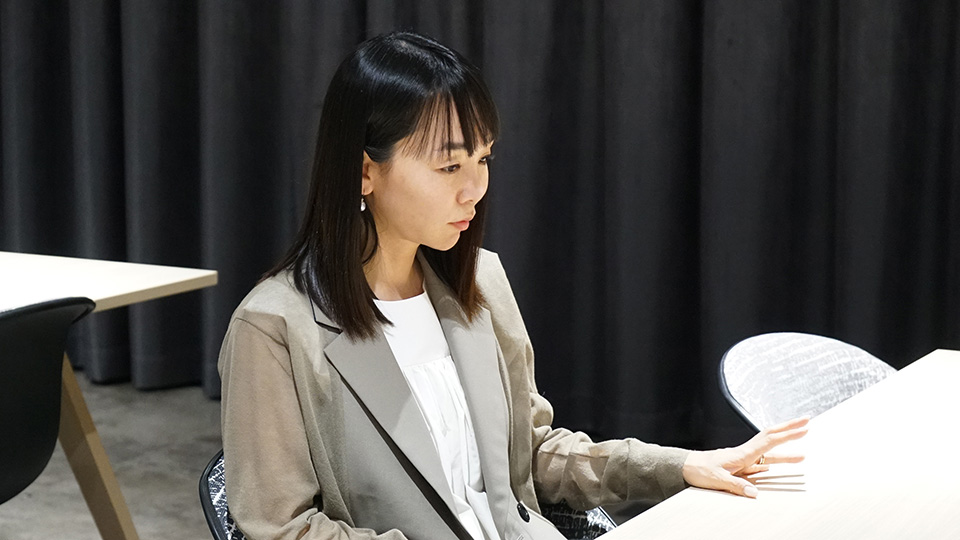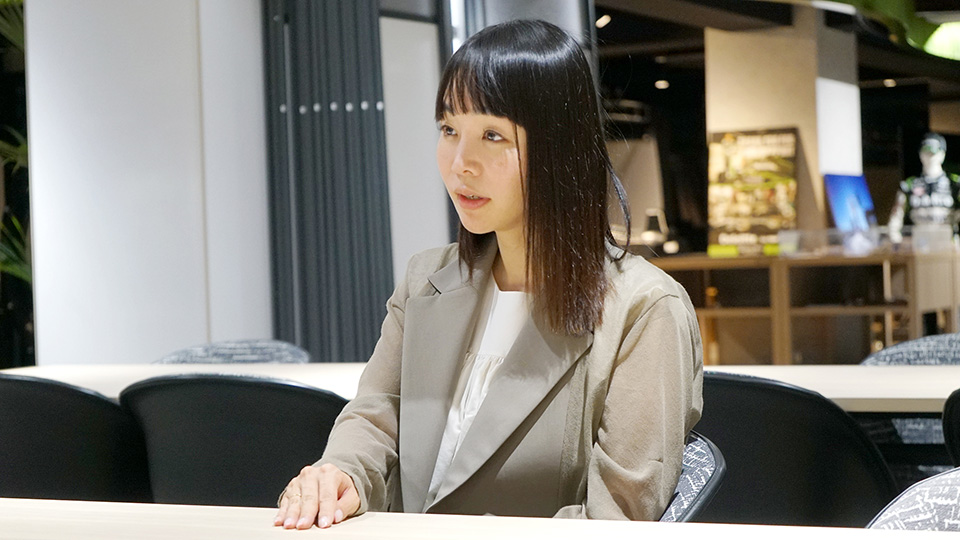- TOP
- About
- Affiliated League
- Information
- League Members
- Partners
- League Report
Search League Members
-
公式X

The ICT Startup League does more than just support entrepreneurs. It provides an arena for competition and co-creation to launch world-class startups from Japan, welcoming individuals regardless of age, gender, region, or background. It fosters "fandom-like" (*oshikatsu*) support, hands-on communities, and an intersection of diverse talent from across Japan and overseas, all while continuing its challenge to change society from a global perspective.
Ayuko Nakamura, President and CEO of eiicon Inc. and a steering committee member of the ICT Startup League, has supported numerous corporate collaborations while operating "AUBA," one of Japan's largest open innovation platforms.
"Open innovation" has become an essential strategy and a new engine for corporate growth. This approach—creating new value by combining the technologies and ideas of startups, other companies, universities, and research institutions, rather than remaining siloed within one's own company—is being increasingly adopted by many corporations.
However, "the path to implementing it is far from smooth," says Nakamura. We spoke with her about the current state, challenges, and future potential of open innovation in Japan.
■Profile

Ayuko Nakamura
President and CEO, eiicon Inc.
Director, XSprout Inc.
Proposed and founded the "eiicon" business in 2015. After launching it as a new business within the PERSOL Group, she conducted an MBO in April 2023. Currently, as President and CEO of eiicon Inc., she is engaged in Open Innovation (OI) support, focusing on "AUBA," an OI support SaaS with over 35,000 registered corporations nationwide. In December 2023, she established XSprout Inc. as a joint venture with the Spiral Group and assumed the role of Director. In May 2025, she became a Director of the Japan Open Innovation Research Institute. In addition to serving as a member of the Japan Patent Office's OI Model Contract Formulation Committee for five terms, she holds multiple committee positions in central government ministries, including the Ministry of Internal Affairs and Communications. She has received numerous awards, including the Japan Service Award's Excellence Prize, the Japan Open Innovation Prize (Minister of Sports Award), and was an EWW EY Winning Women 2024 finalist. She is also highly active as a lecturer, moderator, and judge. Her publications include "The Rules for Successful Open Innovation" (Crossmedia Publishing, 2019) and "The Open Innovation Guidebook for Practitioners" (Co-authored, 2025). Graduated from Tokyo Gakugei University.
How do you think open innovation in Japan has evolved from its inception to the present day?
Nakamura: While it hasn't permeated the entire country yet, I feel that open innovation is becoming quite established, especially among companies and startups in the Tokyo metropolitan area.
However, it's crucial to evolve from the stage of "knowing the term" to the stage of "integrating it as part of business strategy." Just as there's timing in a hiring strategy, companies need a perspective on "when to partner with others." That said, the fact that awareness has spread this far is a huge step in itself.
We are currently at a stage where it has taken root among the "innovator" layer, and we are one step away from reaching the "early adopters." If we can cross this hurdle, I believe Japan has the potential to become a country that the world needs once again. Going forward, co-creation with overseas companies will likely become the main focus.
What do you see as the factors preventing open innovation from progressing smoothly in Japan?
Nakamura: That would be the "merits and demerits of closed innovation." Japan is a country that has long succeeded within a closed organizational structure. Its systems, optimized for division of labor and quality control, were once a strength in the global market. However, in today's rapidly changing world, that closed structure has become an obstacle to growth.
Collaboration between large corporations should produce significant innovation, but in reality, many alliances end in dissolution. This is influenced by a characteristically Japanese structure where parties "agree on the direction but cannot agree on the details." The resolve and organizational streamlining needed to overcome such barriers are still insufficient.

When large corporations and startups collaborate, what is the first barrier they face?
Nakamura: First is understanding the "phase." For example, open innovation doesn't mean much to a seed-stage startup; it's more suitable for a company in its expansion phase. Startups often lack this understanding.
On the other hand, large corporations have learned a great deal. Some have established organizational structures and are producing results. KDDI is very skilled at organization building, which has led to success stories like SORACOM, an IoT communication platform provider. Accelerating growth by leveraging the large corporation's customer base and eventually becoming independent—that kind of win-win relationship is the ideal.
So, a lack of understanding on the startup side is a key challenge.
Nakamura: Yes. The scale of transactions at a large corporation is bigger than one might imagine. Someone who has only experienced startups or small/medium-sized enterprises will be overwhelmed by the sheer scale when dealing with a large company. For example, it's a world where it's normal to need eight internal seals (approvals) on a single proposal document. That means there are eight executives, with hundreds of employees under them. If you don't proceed with the recognition that you are dealing with someone from a completely different world, the "we're all human, we'll understand each other" mindset won't work.
Is the disconnect in perception really that significant?
Nakamura: It is. A company with 100,000 employees and a 5-person startup are different in their "cell count," so to speak. Their range of motion is completely different. The area a contact person can influence is, from the CEO's perspective, as small as a "fingernail." If you don't understand that, you can run out of time and money.
That's why strategic judgment is necessary: which level of the organization to partner with, what scope to operate within, and how to access upper management.

What elements do you think are necessary for the ICT Startup League to provide even more valuable support?
Nakamura: It's important to provide solid support in terms of "people, goods, and money." A strength of the ICT Startup League is its hands-on support. For startups that the steering committee and judges strongly want to "push" (or champion), they provide not just research funds but also human support and introductions. In terms of "people," I believe there is already support for things like proxy applications, but it would be even better if they could inject talent capable of driving the business forward. In terms of "goods" (or resources), I think it would also be effective to segment participating companies by their phase and create separate matching opportunities.
The ICT Startup League's participants span a wide range of ages. What do you see as the benefit of having such diverse people competing and collaborating?
Nakamura: Diversity is essential for innovation. It's not just about age or gender; the differences in each person's background and values generate new insights and possibilities. An environment where everyone shares one common goal—"changing the world as a startup"—but is completely different in every other aspect is extremely interesting.
And above all, they should make "entrepreneurial friends" now. I personally come from an internal corporate venture, so I don't have those "startup buddies" who sprouted at the same time and sharpened each other. As your business phase advances, there are more things you can't talk about. Right now, you should be able to talk about anything, so I strongly recommend becoming friends while you can.

One of the keywords for the ICT Startup League is "oshikatsu" (passionate support). What characteristics make a startup one that you "want to push" or "want to cheer for"?
Nakamura: People who genuinely believe they will "make it happen." However, it's not just about conviction; it's crucial that they have a balance, that they can see their surroundings objectively. I sometimes make angel investments in people who have that sense of balance.
It's less "because they will definitely succeed" and more "I want to see the world they are seeing; I want them to teach me." I once invested in a startup run by technical college students who were creating a community hub for esports. I didn't know much about esports myself, but that's exactly why it was interesting.
Please tell us about the future you envision.
Nakamura: I hope that Japan continues to be a "necessary country" for the world. It's said that Japan is on a gradual decline, but even so, Japan's positive qualities—like the spirit of consideration for others I felt from the people in Osaka at the Kansai Expo, or the culture of "reading the air" (*kuuki wo yomu*)—have precious value in the world.
I genuinely believe that if Japanese companies with this sensibility collaborate with overseas companies, it could lead to world peace and "help the Earth live longer." For example, Indonesia is relocating its capital and is in the process of building a new city. However, the reality is that the environmental impact is not necessarily being prioritized. I wonder why Japan's affordable and sustainable materials and technologies aren't being implemented there.
I believe that if we can collaborate seamlessly with other countries through open innovation, the entire planet will become a better place. I am currently exploring exactly how we can make that a reality.
■ICT Startup League
This is a support program launched in FY2023, originating from the Ministry of Internal Affairs and Communications' "Program for generating and supporting startup-style R&D."
The ICT Startup League supports startups through four pillars:
① R&D Funding / Hands-on Support
Provides R&D funding of up to 20 million JPY as a subsidy. For hands-on support, the selection committee members who selected the league members continue to stay involved post-selection to promote growth. A "fandom-like" (*oshikatsu*) support system is in place, where committee members who strongly "wanted to select" a company personally and continuously support them with advice on their business plan and provide growth opportunities.
② Discovery & Nurturing
We provide opportunities for learning and networking to promote the business growth of league members. We also work to discover aspiring entrepreneurs to broaden the base of talent.
③ Competition & Co-creation
It provides a positive competitive arena, much like a sports league, where startups learn together and compete to win the funding they truly need (up to 20 million JPY). It also offers a place for co-creation, where league members can collaborate and expand their businesses through various opportunities, such as sessions with selection committee members.
④ Dissemination
We collaborate with media to publicize the initiatives of league members! By raising awareness of their businesses, we aim to expand opportunities for new matching and chances.
■Related Websites
eiicon Inc.
/
AUBA
/
TOMORUBA
/
XSprout Inc.
/
ICT Startup League